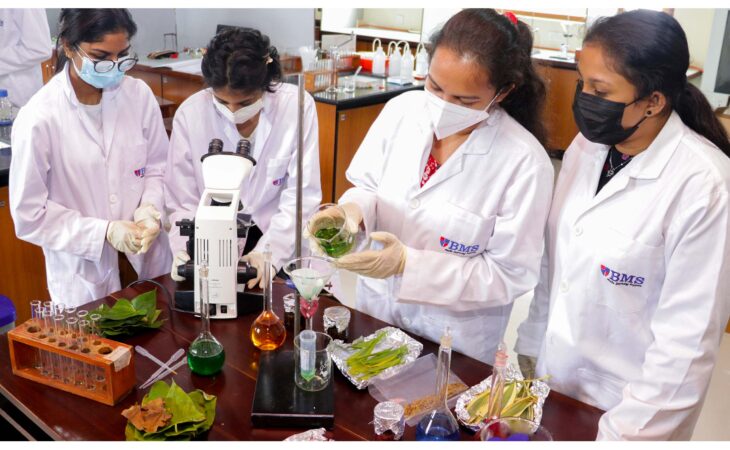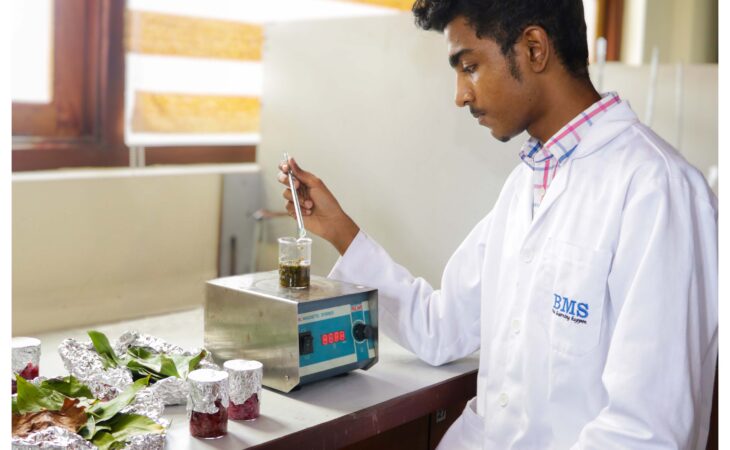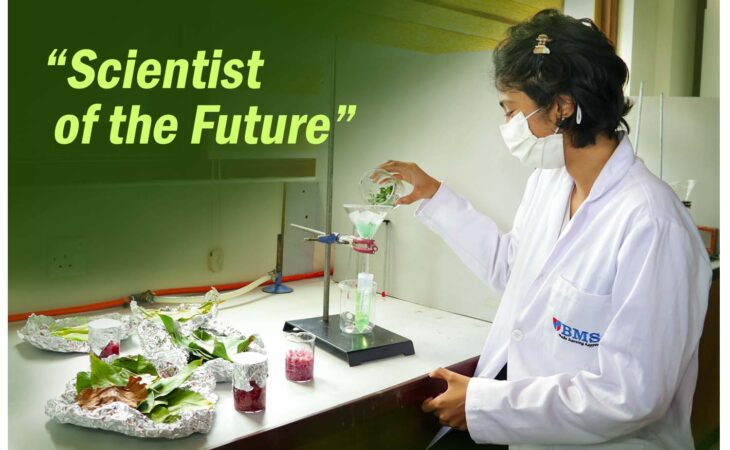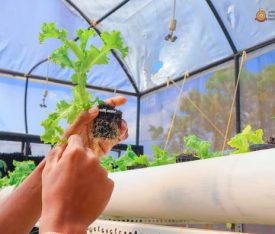The Higher Diploma in Food Science and Nutrition programme is designed specifically for students interested in the areas such as food manufacture, food analysis, food safety, new product development, sensory evaluation, retail food distribution and catering. Throughout the Food Science and Nutrition programme, students will study multi-disciplinary fields such as Chemistry, Biochemistry, Nutrition, Food Safety, Preservation and Food Microbiology to gain the scientific knowledge to solve problems related various aspects of the food system. This programme also develops transferrable skills including laboratory techniques, data analysis, IT, interpersonal and teamwork skills to prepare the students for further study or employment in the field of Food Science and Nutrition.
Food and its nutrients are essential for our survival. Food Science focuses on the understanding the science behind the physical, biological and chemical makeup of food. Nutrition is a growing area of study on the role of diet in maintaining a healthy human body and the prevention of disease.
why study?
◈ On successful completion of the HD Food Science and Nutrition, students will be able to progress to BSc (Hons) in Food Science and Nutrition degree (final year).
◈ The BSc (Hons) Food Science and Nutrition is an internal honours degree awarded directly by Northumbria University, UK at BMS.
◈ As part of the programme, students will gain access to BMS’s state-of-the-art laboratories where they will perform a series of practical experiments that will strengthen their scientific research skills.
◈ The academic sessions are provided by a panel of academics who are specialized in the field of Food Science and Nutrition.
◈ The degree is both locally acclaimed and globally recognized by the University Grants Commission (UGC)
Programme Structure
Higher Diploma in Food Science and Nutrition is made up of sixteen modules and a Research Project, which comprise of 240 credits with progression to the final year of Northumbria University BSc (Hons) Food Science and Nutrition Degree.
| Year 1: Semester 1 |
| Code |
Module |
Hours |
Credits |
| FSNU 411 |
Cell Biology |
150 |
15 |
| FSNU 412 |
Food Biochemistry |
150 |
15 |
| FSNU 413 |
Chemistry for Biology |
150 |
15 |
| FSNU 414 |
Fundamentals of Food and Nutrition |
150 |
15 |
| FSNU 415 |
Scientific and Laboratory Skills |
100 |
10 |
| FSNU 410 |
Academic Writing and Study Skills |
200 |
0 |
| Year 1: Semester 2 |
| Code |
Module |
Hours |
Credits |
| FSNU 426 |
Molecular Biology and Genetics |
150 |
15 |
| FSNU 427 |
Human Anatomy and Physiology |
150 |
15 |
| FSNU 428 |
Food Microbiology |
100 |
10 |
| FSNU 429 |
Science Laboratory Management |
100 |
10 |
| Year 2: Semester 3 |
| Code |
Module |
Hours |
Credits |
| FSNU 531 |
Work-Based Internship |
150 |
15 |
| FSNU 532 |
Analytical and Food Chemistry |
150 |
15 |
| FSNU 533 |
Nutritional Diseases and Disorders |
150 |
15 |
| FSNU 534 |
Bioinformatics and Data Analysis |
150 |
15 |
| Year 2: Semester 4 |
| Code |
Module |
Hours |
Credits |
| FSNU 545 |
Food Processing and Preservation |
150 |
15 |
| FSNU 546 |
Food Quality and Safety |
150 |
15 |
| FSNU 547 |
Research Project |
300 |
30 |
Entry Requirements
- ◈ Pass Grades in Chemistry and Biology (GCE A/L-Bioscience)
- ◈ All Pass Grades (GCE A/L-Technology)
- ◈ International Foundation Diploma (IFD) with evidence of English ability































